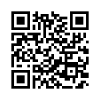PENGGUNAAN GRAMATIKA DALAM WACANA POLITIK: STUDI REPRESENTASI BAHASA SEBAGAI SISTEM MAKNA SOSIAL DAN POLITIK
Abstract
The grammar of the Indonesian language is greatly made use of in
political discourse and especially after the era of the Old Order. Via grammatical
forms, the political elite fights for its power and ideology, both explicitly and
implicitly, causing an unbalanced political communication. A research study this
article is about was conducted to (1) describe and interpret the utilization of
grammaticality in political discourse and (2) clarify why certain grammatical
forms are paid special attention while others are not.
The study applied a critical qualitative approach with a “critical discourse
analysis” design from Fairclough (1989: 1995). In this perspective, no text
produced by the political elite is neutral from political interest. Discourse is a
social construction and results from social-historical and political conditions.
There is no discourse which is a social vacuum. Discourse is a social creation
reflecting the interests of certain social groups.
The research results indicate that (1) each group of the Indonesian
political elite uses transitivity with material meaning, agent nominalization, the
passive voice, and the negative form to show its power and hide its ideological
position, (2) each assumes the role of information provider, shows its authority in
the presence of the other groups and the Indonesian society, and asserts its power
by choosing to use the personal pronouns we and I, (3) it makes considerable use of
modality expressing authority, and (4) there are institutional and cultural processes
explaining why certain grammatical forms are paid special attention while others
are not.
Keywords: grammaticality, political discourse
political discourse and especially after the era of the Old Order. Via grammatical
forms, the political elite fights for its power and ideology, both explicitly and
implicitly, causing an unbalanced political communication. A research study this
article is about was conducted to (1) describe and interpret the utilization of
grammaticality in political discourse and (2) clarify why certain grammatical
forms are paid special attention while others are not.
The study applied a critical qualitative approach with a “critical discourse
analysis” design from Fairclough (1989: 1995). In this perspective, no text
produced by the political elite is neutral from political interest. Discourse is a
social construction and results from social-historical and political conditions.
There is no discourse which is a social vacuum. Discourse is a social creation
reflecting the interests of certain social groups.
The research results indicate that (1) each group of the Indonesian
political elite uses transitivity with material meaning, agent nominalization, the
passive voice, and the negative form to show its power and hide its ideological
position, (2) each assumes the role of information provider, shows its authority in
the presence of the other groups and the Indonesian society, and asserts its power
by choosing to use the personal pronouns we and I, (3) it makes considerable use of
modality expressing authority, and (4) there are institutional and cultural processes
explaining why certain grammatical forms are paid special attention while others
are not.
Keywords: grammaticality, political discourse
Full Text:
PDFDOI: https://doi.org/10.21831/diksi.v15i2.6609
Refbacks
- There are currently no refbacks.
Copyright (c) 1970 DIKSI
Jurnal Diksi is published by Faculty of Languages, Arts, and Culture, Universitas Negeri Yogyakarta. It is licensed under a Creative Commons Attribution-ShareAlike 4.0 International License. Based on a work at http://journal.uny.ac.id/index.php/diksi
Our Journal has been Indexed by:
Diksi Journal is published by the Faculty of Languages, Arts, and Culture Universitas Negeri Yogyakarta in collaboration with Himpunan Sarjana Kesusasteraan Indonesia (HISKI)
Supervised by:

2.png)














